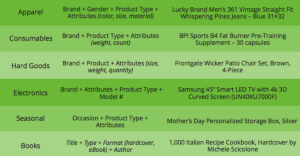— May 26, 2018

In 1989, Stephen Covey created a sensation with the publication of “7 Habits of Highly Effective People” – a bestseller that sold 25 million copies. The principles he espoused nearly 30 years ago continue to guide millions of people worldwide.
Although “7 Habits” wasn’t written with email marketers in mind, the advice it offers can be useful to all professionals. In the meantime, inspired by Dr. Covey’s groundbreaking work, we’ve put together our own list. We’ve boiled successful email marketing down to nine habits that are common to the best in the field:
1. They craft a clear and compelling call to action
What’s the formula for a CTA that gets the job done?” That’s easy: It’s one that “tells your readers exactly what you expect them to do next, and reminds them why it’s in their best interest to buy,” writes Henneke Duistermaat at Copyblogger.
2. They never stop A/B testing
“A/B testing, when done properly, is a game changer, writes Blake Miller on the SalesForce blog. “It’s important to note that a true A/B test only changes one element at a time. This will allow you to pinpoint which pieces of content — like the subject line, preheader text, or button style — affect certain metrics.”
3. They are quick to welcome new prospects
“It’s important to take advantage of the window of opportunity when your company or brand is at the top of your prospects’ minds,” writes Lindsay Kolowich on the HubSpot blog. “You can really get a pulse of what future engagement will look like by what people do when you email them within 24 hours of their subscribing to your newsletter, signing up for an offer, and so on. Plus, it’s a great opportunity for branding and setting expectations.”
4. They offer customers value
Value can come in many forms: It can be “…a key insight, a touching story, a special offer, or anything else that is relevant to your business and your audience,” according to David Finkel at Inc. “What do you talk with your prospects and customers about when you’re with them in person? What do they care about? How do you touch their lives? This is the core of your email messaging.”
5. They focus on fostering positive emotions
“One of the oldest marketing strategies is to associate positive emotions with your brand,” writes Scott Posilkin on the AddThis blog. “The same idea is true for email. Surprise and delight campaigns remain a hot-button marketing topic because they work.”
6. They leverage the power of personalization
“When you create relevant experiences using personalization, you get better results from your emails,” we wrote. “When you personalize elements of your marketing emails like the subject line and email content, you’re speaking directly to your subscriber. And if you’re using more advanced personalization information like location or past purchases, you’ve successfully created a relevant experience.”
7. They take subject lines very seriously
“No matter what they say, people do judge emails by their subject lines,” writes Olivia Allen on the Hubspot blog. “In fact, 47% of email recipientsdecide whether or not to open an email based on subject line alone. That’s why it’s so important to craft subject lines that are compelling enough to get people to click through.” Want your subject lines to pop?
8. They leverage the power of segmentation
“Segmentation is what helps you stay relevant, automagically, with your ever-changing list and their ever-changing wants/needs,” writes Erik Harbison on the ConversionXL “If you don’t do email segmentation, you currently have one big list of emails. If you do do email segmentation, you could have dozens of lists of emails. Why? Because you’ve taken that big list and broken it down into meaningful, useful segments.”
9. They let their brand personality shine
The biggest email marketing mistake I see people are guilty of is not letting their own personality shine through,” writes Paul Jarvis at Zapier. “People probably signed up for your list because they liked your unique voice, your point of view, the way you do things that isn’t the same as everyone else. So when you’ve got something to do sell them, for Pete’s sake, keep your personality and voice shining through.”
Digital & Social Articles on Business 2 Community
(90)









